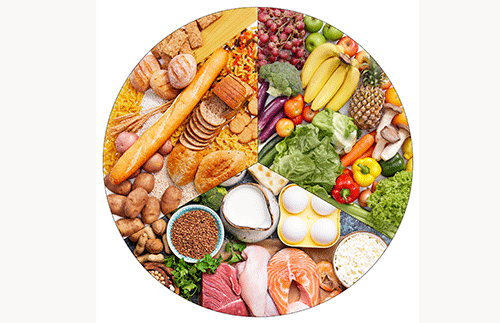Maria Haipinge
Despite the importance of nutrition, many people find it difficult to maintain healthy eating habits because, let’s face it, life is expensive.
On top of that, many people are becoming busier and busier in terms of work commitments, i.e., working longer hours, sitting a lot, pressure, as well as family responsibilities and demanding lifestyles.
Panduleni Shimanda too found life and work pressures demanding, leaving him overwhelmed and stressed, and this led to his productivity levels declining every day.
“Although I understand the importance of diet, I basically had no specific diet plan, which led to issues with low appetite and a stress-induced perception of no time to invest in preparing meals and a diet plan. One of the major negative practices in that period was omitting breakfast, making the day mostly inefficient,” he told New Era.
So, together with the decision to take up behavioural psychotherapy, he included seeing a dietician to change his negative eating habits.
“My dietician helped a lot with the development of the diet plan and supporting the process of change. It was not easy at the start, as it is with all changes. But then with the continuous professional support, I am progressing well in transforming my lifestyle,” he said.
Shimanda has been in consultation with his dietician Samantha du Toit for over a year now, having started with frequent sessions at the beginning, to now only seeing her every three months, or if needed.
With Du Toit’s assistance, he has improved his eating behaviour through a full diet plan that includes meal preparations and adhering to the therapy.
“Most importantly, I have changed the negative norm of omitting breakfast, thanks to the golden reminder that even my hyperactive brain needs fuel, despite the inappetence. This also helps to keep me on my diet plan through the day.”
Shimanda said he would definitely recommend a dietician, and it is more important for children who are growing up in an overly processed food era.
Du Toit concurred with the importance of proper nutrition for children, saying the impact of a poor diet is greater on children than adults.
“This is because they are developing, especially in the first (thousand) days. From conception to the age of two, there is a lot of damage that poor nutrition can do to their development. Some of that damage is irreversible. For example, if a child does not grow properly, they are stunted, and there will not be a chance to make up for that.”
She added that extensively processed foods like wheat and potatoes are not nutritious. Although high in energy, they are not high in the core nutrients needed.
“That’s becoming a major problem because people who are living in poverty have access to those kinds of foods. These foods temporarily fill the stomach, but they’re not actually meeting their nutritional needs.”
Du Toit defines nutrition as the biological process by which the body uses food to support all the basic functions of the human body. It includes ingestion, absorption, assimilation, biosynthesis, catabolism and excretion.
The dietician said proper nutrition is, however, a major problem in many developing countries, adding that the availability and accessibility of nutrients and nutrition is, unfortunately, closely tied to the economy.
“As soon as there is poverty, then we have what we call food insecurity; people don’t know where the next meal is coming from”.
But even if nutritious foods are available, it is not affordable, generally because of poverty, and the fact that foods that have a lot of nutrients are expensive.
There are a few basics about nutrition. The first is adequacy, which is whether a person is eating enough food. The next is the balance between macronutrients, which is whether a person is getting carbs, proteins and fats. The third is variety, which comprises nine different groups that are very nutritious.
These groups are made up of:
starches, cereals, roots and tubers
eggs
dairy products
nuts, seeds and beans
dark green leafy vegetables
orange or yellow vegetables or fruit
all other colours of vegetables or fruit
liver, kidneys, organ meat
any kind of chicken meat or fish
Du Toit said if we are to eat six out of those nine food groups in a day, then we are meeting most of our nutrient needs. It does not have to be every day, but it can be most days.
For example, if someone is chronically consuming only one type of food, such as generally just living on pap (porridge), which is one of the food groups, it will definitely cause a deficiency in time or with time.
With the current epidemiological trends and prevalence of lifestyle-related chronic diseases, dietician support is very significant in ensuring a healthy society.
Du Toit observed that dietitians are essential as they are healthcare professionals trained in medical nutrition therapy, which is used to help prevent certain diseases. But they also play a role in the management of many different types of diseases like diabetes, high cholesterol, high blood pressure, or any kind of metabolic disease.
She made the example of a person with kidney failure who is on dialysis, saying such individual would need a special kind of low protein diet and low mineral diet because of the kidneys which are not functioning properly.
Dieticians also work in hospitals, taking care of patients’ nutritional needs, making sure that they get the right food. They are also working with specialised nutrition like tube feeding for patients who are very ill and cannot eat. A tube is inserted in their stomach to provide them with nutrients.
“At the moment, I believe we have enough dieticians and nutritionists in Namibia, but we’ve got a problem of nutritionists not finding work,” she lamented. – emariahaipinge@gmail.com


